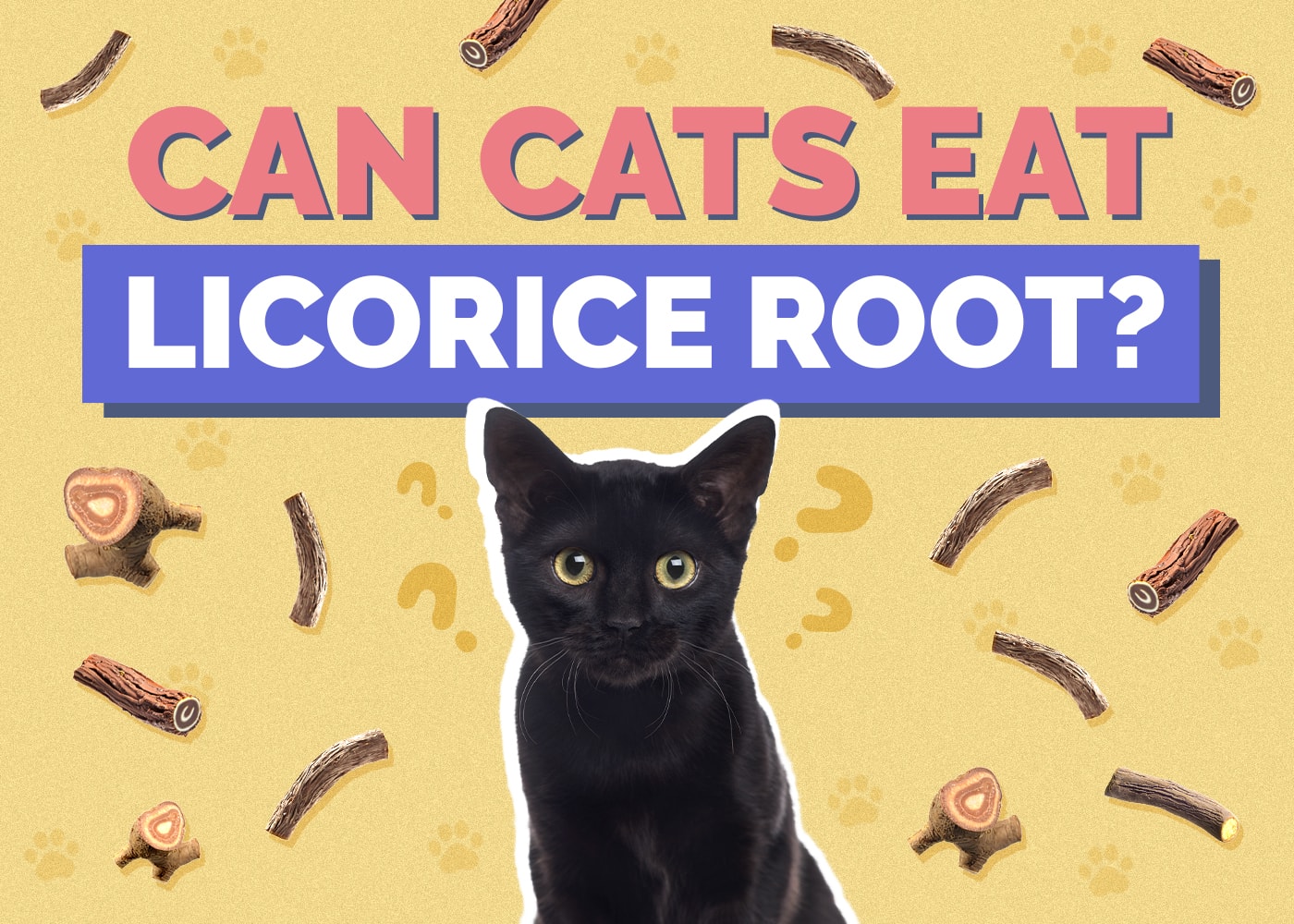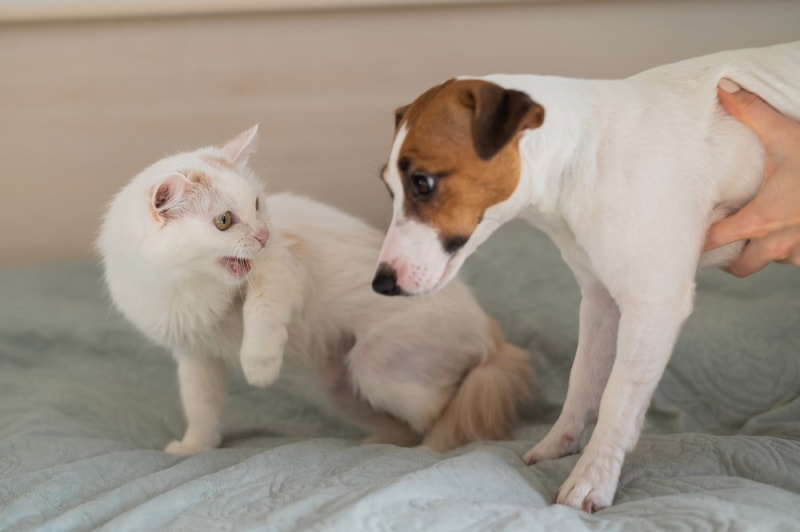Can Cats Get Hemorrhoids? Vet-Reviewed Facts & FAQ
By Lorre Luther
Updated on
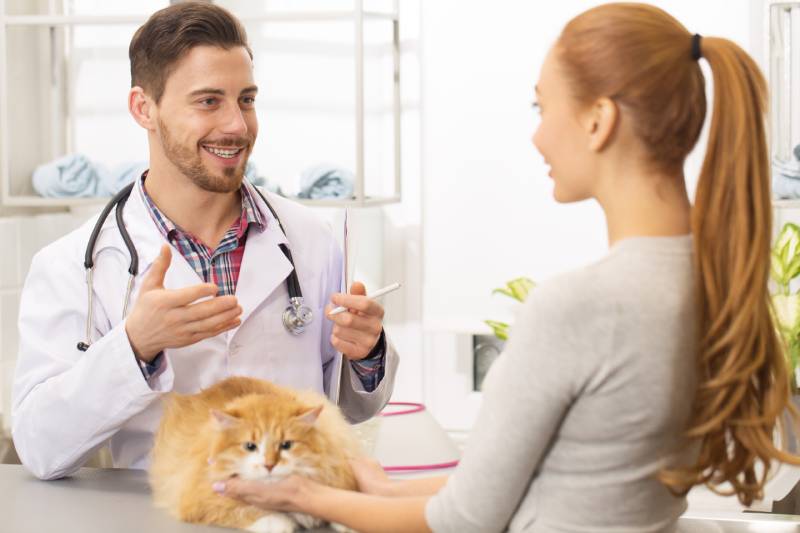
If your cat has recently been licking their bottom, walking gingerly, and their anus appears red and irritated, you may wonder if cats can get hemorrhoids. While cats can suffer from several anal conditions, hemorrhoids aren’t one of them.
Anal gland issues and tummy problems such as diarrhea and constipation can all cause those sorts of signs in cats. Other anal conditions include rectal prolapse and some types of cancer. A veterinarian should always evaluate anal irregularities.
What Do Cats’ Anal Glands Do?
Every cat has two anal sacs, one on each side of their anus. The glands produce a pungent, dark liquid that they use to help mark their territory. The anal fluid is normally expressed from the sacs when a cat passes poop.
What Conditions Can Cause Anal Problems in Cats?
While cats can’t get hemorrhoids, several conditions can impact their bottoms including anal sac infections, ruptures, and impactions.
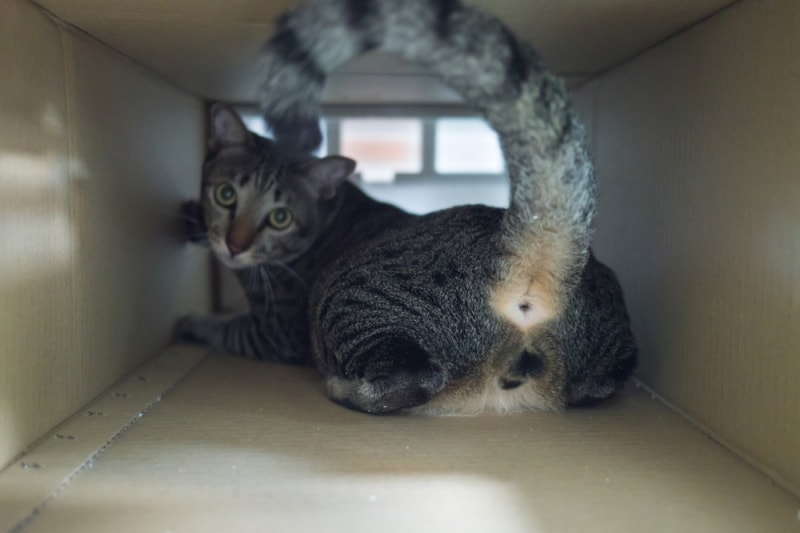
1. Anal Gland Impactions
When cats’ anal glands don’t empty as they should, the fluid becomes viscous and difficult to pass. The anal glands can become swollen and sore as the liquid builds up.
Common signs of anal gland impaction include licking and biting at their bottoms, difficulty sitting, and trouble pooping. Some cats show signs of discomfort when having a bowel movement or sitting, and many hold their tails in unnatural ways.
Anal gland impactions can usually be addressed by manual expression of the glands to get things moving again. Saline solution is sometimes used to soften hardened bits of anal fluid to make the process easier.
The procedure can usually be done right in veterinarians’ offices. Cats with these problems can benefit from increased dietary fiber to make having bowel movements easier.
2. Anal Gland Infections
Bacteria can proliferate in cats’ anal sacs and end up causing infections if impactions aren’t promptly treated. Abscesses often develop when pus from infections collects and is unable to drain.
Anal gland infections are quite painful and can be itchy, and cats suffering from them can show signs such as fear and aggression. Signs of anal sac infections include licking and biting as well as difficulty sitting and pooping.
Treatment for anal infections usually involves expressing the gland and cleaning it thoroughly with saline or an antiseptic. Abscesses usually need to be drained. Prescription pain medication is sometimes required to keep cats comfortable, and antibiotics are needed to resolve infections.
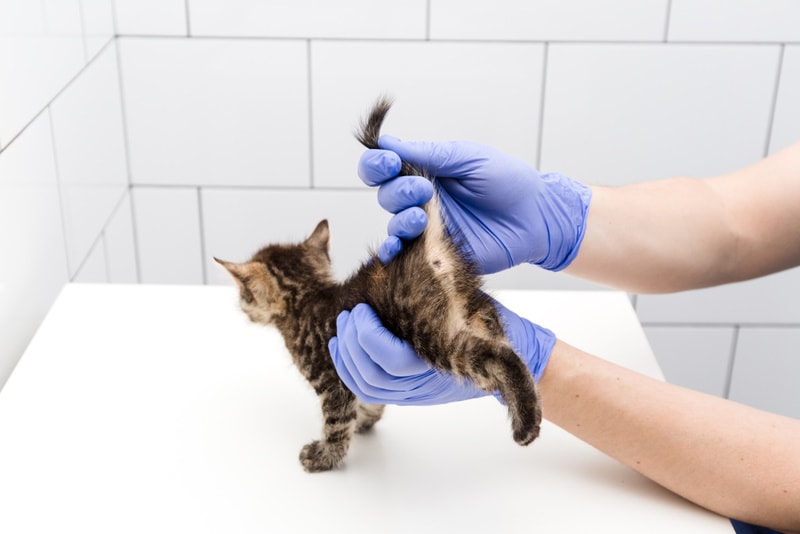
3. Anal Gland Ruptures
Anal abscesses that aren’t drained can burst, as the contained pus needs somewhere to go. Signs of an anal gland rupture include bloody draining pus, inflammation, and trauma around the anus.
Treatment often involves cleaning the area and the anal gland. Surgery is occasionally needed to deal with damaged areas. Treatment usually involves prescription medication to address pain, as well as antibiotics. Cats almost always need to be sedated during treatment.
4. Cancer
Adenocarcinomas are rare cancerous gastrointestinal tumors. The stomach, intestines, and rectum can all be impacted by the condition. Veterinarians don’t know what causes it, and there doesn’t appear to be a link between the condition and specific breeds. Male cats may be more likely to develop the condition than female cats, and the tumors are most often seen in older cats.
Diagnosis usually involves a physical exam, blood and fecal tests, and imaging studies such as ultrasound. Surgery is the most common treatment option.
Signs of the condition include decreased appetite, weight loss, vomiting, bloody poop, difficulty pooping, and vomiting.
Treatment usually involves surgery to remove the mass. Adenocarcinomas are fast-growing tumors and can move to other parts of cats’ bodies.
5. Rectal Prolapse
Rectal prolapse is when the rectum is pushed through a cat’s anus. Incomplete rectal prolapses often occur when cats are having difficulty pooping. Once the poop comes out or the cat stops trying, the rectal tissue usually returns to where it belongs.
Complete rectal prolapses occur when a cat’s entire rectum comes through the anus, and it usually looks like a tube sticking out from the cat’s bottom.
Complete rectal prolapses are considered veterinary emergencies. Signs of the condition include pain, licking and biting at the area, and straining. Dark prolapsed tissue often indicates the condition is progressing and may indicate tissue death.
Problems can also arise if the rectum begins to break down or swell. Veterinarians can diagnose rectal prolapses based on a physical exam. Blood tests, X-rays, and parasite testing are sometimes used to identify underlying causes. Treatment of the condition usually requires surgery. In severe cases, part of a cat’s rectum may need to be removed.
The Causes of Rectal Prolapse
Several underlying problems can lead to rectal prolapse, including tumors, constipation, foreign body obstructions, diarrhea, and parasites. Queens who strain excessively or for a long time while giving birth can also develop the condition. Parasites are frequently responsible for the problem in kittens.
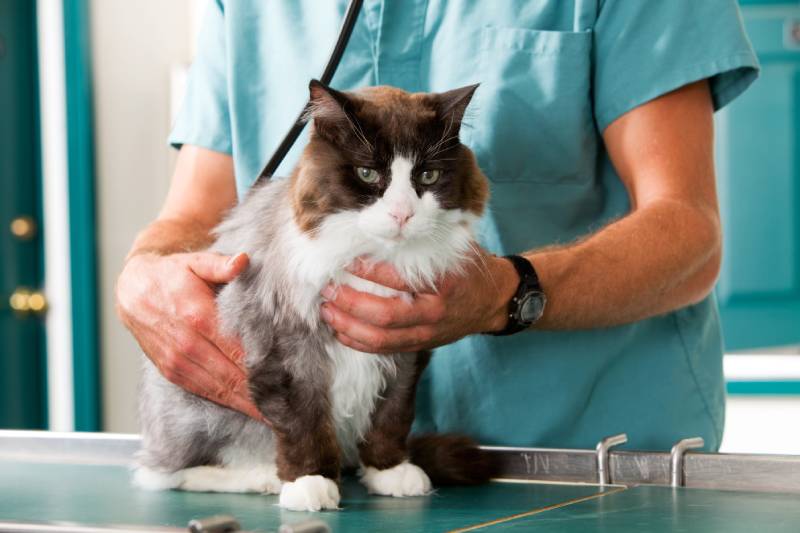
Frequently Asked Questions (FAQ)
Are Anal Gland Problems More Common in Certain Breeds?
No. Anal gland issues can be found in cats of all breeds and sexes, but cats that weigh too much are at increased risk of developing anal gland problems; their additional body fat can make it difficult for poop to clear out their anal glands. Rectal prolapse problems are often more common in breeds with short tails, like Manx cats.
Can Cats Live Without Anal Glands?
Yes. Veterinarians sometimes recommend the removal of anal glands that cause chronic problems. Cats generally recover and do fine after the surgery. It’s an effective way to address recurrent anal gland issues permanently, but sometimes problems such as incontinence develop after surgery.
Do Weight Loss Formulations Contain Fiber?
Commercial cat foods formulated to encourage weight loss often have more fiber than choices made for healthy adult cats who don’t need to drop a few pounds. But always speak with your veterinarian before switching your buddy to a new pet food to make sure they get a choice that’s right for their individual needs.
Conclusion
Cats don’t get hemorrhoids, but they can experience issues with their anal glands. Anal problems in cats can be caused by anal gland issues, diarrhea, and constipation. There are a few things you can do to support your cat’s overall health and keep them defecating as nature intended, including ensuring they maintain a healthy weight and get sufficient dietary fiber. Keeping an eye on your cat’s bowel movements can provide information about their anal health and alert you that they need to see your veterinarian.
- See also: Why Does My Cat Keep Getting Poop Stuck to Their Bum? Vet-Reviewed Reasons & How to Remove It
Featured Image Credit: Nestor Rizhniak, Shutterstock




